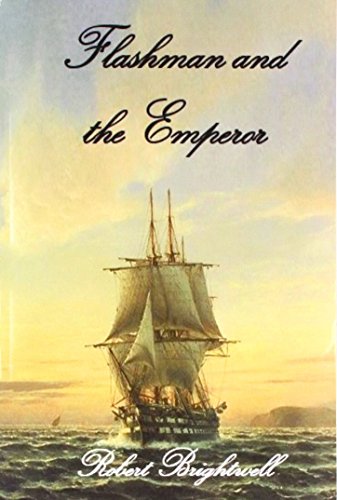Flashman and the Emperor
In 1822 Flashman meets Thomas Cochrane’s brother, Erskine, at Napoleon’s grave on St. Helena. Although Thomas resigned in disgrace from the Royal Navy, he’s been appointed as the First Admiral of the rebel Chilean navy and invites Flashman, his comrade-in-arms from the Peninsula and Waterloo wars, to assist Chile in obtaining independence. Flashman and Erskine sail for Rio on a steamship of revolutionary design, and after partaking in Rio’s delights, head for Valparaiso. But the Chilean war is over, and while Flashman is elated at reuniting with Cochrane, he is also disappointed, having lost out on prize money. Cochrane is appointed to head the revolutionary Brazilian navy and makes Flashman a captain of their marines, composed mostly of freed slaves. Flashman, with thoughts of not only bounty but also relishing Carioca women again, happily joins Cochrane on his flagship. Flashman ably assists seawolf Cochrane in concocting devious schemes, with limited resources, to battle the vastly superior Portuguese navy.
This is the seventh novel in Brightwell’s Thomas Flashman series, which he has developed cleverly by creating Thomas as the uncle of famous Fraser’s fictional Harry Flashman. Thomas is just as adventurous, clever, conniving and romantic as his nephew. Using the same first-person voice with humorous undertones, Brightwell has captured Fraser’s style admirably. The historical narrative of the independence wars in Chile and Brazil, peppered with little-known facts and presented in a fictional format, vividly brings out the heroic struggle by those nations against their colonizers. To subvert the internal conflict between different factions within Brazil, and unite them, Cochrane signals: “Brazil expects every man to do his duty,” and Flashman trains his black marines into a fierce fighting force. While the bluff used by Cochrane on the Portuguese is well-recorded in history, its fictional narration here will enthrall readers. Highly recommended.










